Just In
- 2 hrs ago

- 2 hrs ago

- 5 hrs ago

- 6 hrs ago

Don't Miss
- News
 Railways To Run Special Trains For Elections In Karnataka
Railways To Run Special Trains For Elections In Karnataka - Movies
 Heeramandi Screening: Salman Khan's Presence Hinting At Sanjay Leela Bhansali's Inshallah Being Revived?
Heeramandi Screening: Salman Khan's Presence Hinting At Sanjay Leela Bhansali's Inshallah Being Revived? - Automobiles
 Bajaj To Offer Chetak Electric Scooter At Lower Price Point: All Details Here
Bajaj To Offer Chetak Electric Scooter At Lower Price Point: All Details Here - Sports
 Bangladesh vs Zimbabawe: Will Shakib Al Hasan Play Home T20 Series In May Or Not?
Bangladesh vs Zimbabawe: Will Shakib Al Hasan Play Home T20 Series In May Or Not? - Technology
 Qualcomm Reveals Snapdragon X Plus Chip for Laptops: 10 Core CPU, On-Device AI, & Much More
Qualcomm Reveals Snapdragon X Plus Chip for Laptops: 10 Core CPU, On-Device AI, & Much More - Education
 Kerala SSLC Results 2024: Number of Ways you can check the Results
Kerala SSLC Results 2024: Number of Ways you can check the Results - Finance
 Gold Prices Ayodhya: In Ram-Janma-Bhumi, 24carat Falls By Rs 380 In 10-Grams, Drops By Rs 3,800 In 100-gram
Gold Prices Ayodhya: In Ram-Janma-Bhumi, 24carat Falls By Rs 380 In 10-Grams, Drops By Rs 3,800 In 100-gram - Travel
 Escape to Kalimpong, Gangtok, and Darjeeling with IRCTC's Tour Package; Check Itinerary
Escape to Kalimpong, Gangtok, and Darjeeling with IRCTC's Tour Package; Check Itinerary
Ayurvedic Ingredients To Treat Allergic Rhinitis
If you have been suffering from allergic rhinitis, then here are a few ayurvedic ingredients that help. Check them out.
Allergic rhinitis occurs when a person's body over responds to an allergen. The person ends up with a runny nose, sore throat, sneezing and watery and itchy eyes.
The allergen could be anything - a pollen, dust, mite, animal hair, smoke, tobacco or a chemical. The antibodies come and attach themselves to the mast cells in the lungs, skin and mucous membranes.
The cells produce histamine, which in turn opens the blood vessels and causes swollen membranes. When it happens in the nose, it causes sneezing and congestion.

In its attempt to expel the substance, the mucous membranes produce a sticky mucus. It prevents the entry of small particles into the nasal passage and ultimately lungs.
Obstruction of the nasal passage, a runny nose with watery secretion, itchy eyes, throat and nose, heavy sneezing, tears in the eyes and fever are the symptoms of allergic rhinitis.
The key factor to overcome allergic rhinitis is to avoid the allergen. Also, according to Ayurveda, there are certain foods that help in fighting the condition and make life easier during the period. From tulsi to pearl onions, here are some of them:
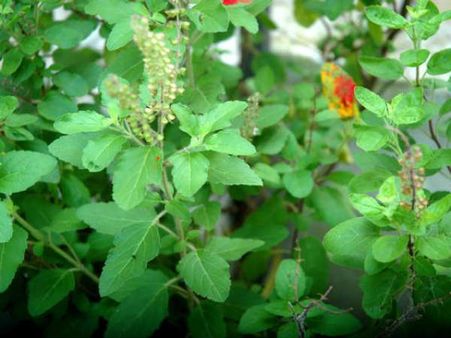
Tulsi:
The element, eugenol, is the magic substance responsible for the therapeutical use of tulsi. The herb has anti inflammatory properties and gives optimum respiratory comfort by reducing the symptoms of allergy. Make a hot cup of tulsi tea to soothe your rhinitis.
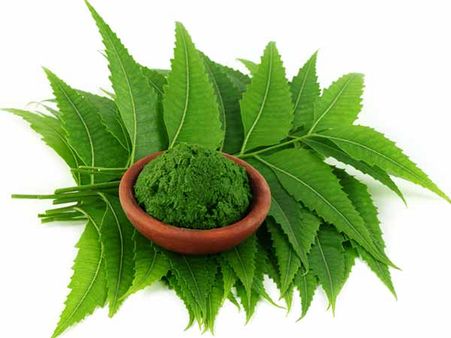
Neem:
Neem has anti bacterial and anti viral properties, making it useful for any type of allergy and the microbial infections that are bound to follow.
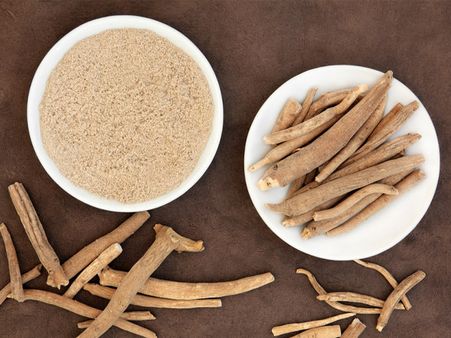
Ashwagandha:
Ashwagandha is advisable for the general well being of the human body. It improves the immunity and helps the T-cells to identify invaders and fight them out.

Cinnamon:
Cinnamon can act as a natural nasal dilator. It eases breathing and helps in preventing over secretion of mucus. It is, however, not recommended for long term use.
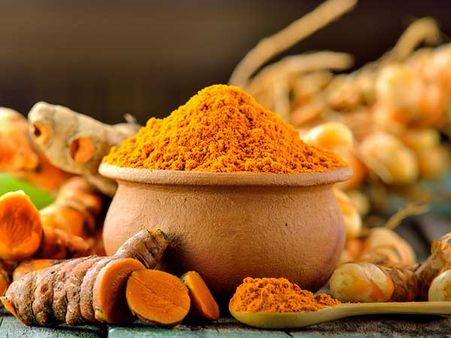
Turmeric:
Turmeric is anti allergic, anti inflammatory and anti bacterial - a set of properties that can help fight rhinitis. A mixture of honey and turmeric is best for rhinitis.

Amla:
Amla is a rich source of vitamin C - an immunity booster. It is anti allergic and can prevent inflammation. It is beneficial when the disease is still in pita stage. Triphala powder, of which amla is a major constituent, can be a good bet for rhinitis.
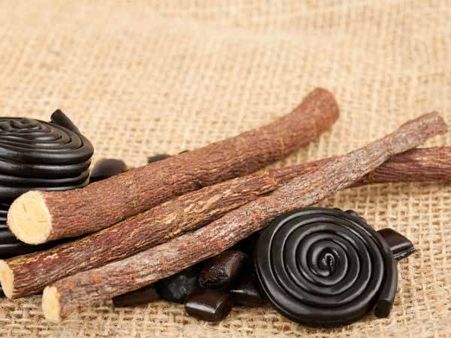
Licorice:
It can help prevent lingering of phlegm. It has mild anti histaminic effects as well. You can add a pinch in the honey and turmeric mixture for best effects.

Ginger:
Ginger can reduce inflammation, soothe sore throat and act as a bioenhancer to improve metabolism. Studies on mice have shown that a ginger diet can reduce the infiltration of mast cells in nasal mucosa. It reduces the severity of sneezing and nasal rubbing.
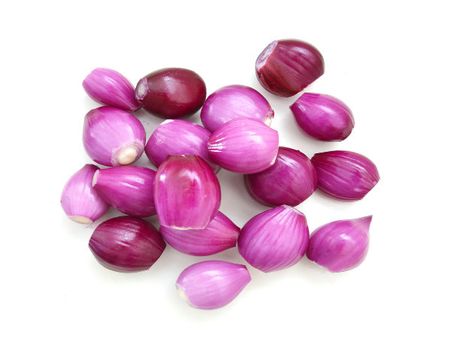
Pearl Onion:
Small onion has high anti viral properties. Mix it with jaggery and leave it for some time. Watch a liquid oozing out of the mixture. Have it frequently to beat rhinitis.
-
 healthHaving Chicken Soup At Home Can Cure These Health Issues
healthHaving Chicken Soup At Home Can Cure These Health Issues -
 healthAyurvedic Items To Keep With You While You Are Traveling
healthAyurvedic Items To Keep With You While You Are Traveling -
 healthWhy Morning Is The Best Time To Detox According To Ayurveda?
healthWhy Morning Is The Best Time To Detox According To Ayurveda? -
 healthDurga Puja 2023: Health Benefits of Parijat Leaves And Flowers
healthDurga Puja 2023: Health Benefits of Parijat Leaves And Flowers -
 healthAyurvedic Wisdom: Panchamrit's Surprising Health Benefits
healthAyurvedic Wisdom: Panchamrit's Surprising Health Benefits -
 healthUnveiling the Power of Turmeric Ghee: An Ancient Ayurvedic Secret!
healthUnveiling the Power of Turmeric Ghee: An Ancient Ayurvedic Secret! -
 beautySay Goodbye to Dry and Damaged Hair with These Ayurvedic Remedies!
beautySay Goodbye to Dry and Damaged Hair with These Ayurvedic Remedies! -
 beautyUnlocking Ayurveda's Secrets: Natural Hair Care Tips For Hair Loss
beautyUnlocking Ayurveda's Secrets: Natural Hair Care Tips For Hair Loss -
 beautyHair Loss From Stress? Try These Ayurvedic Remedies
beautyHair Loss From Stress? Try These Ayurvedic Remedies -
 healthFrom Illness To Wellness: Traditional Home Remedies For Dengue That Work
healthFrom Illness To Wellness: Traditional Home Remedies For Dengue That Work -
 healthDoctors Day: The Future of Medicine in India: Top 5 Recent Medical Innovations
healthDoctors Day: The Future of Medicine in India: Top 5 Recent Medical Innovations -
 healthDoctors’ Day: The Early Indian Medicine Inventions; Its Not Just Ayurveda!
healthDoctors’ Day: The Early Indian Medicine Inventions; Its Not Just Ayurveda!


 Click it and Unblock the Notifications
Click it and Unblock the Notifications



